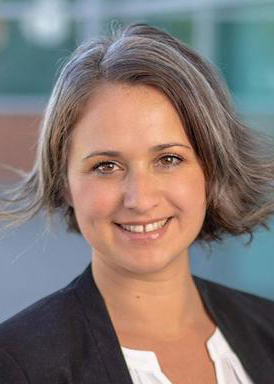Winter food systems seminar to highlight food rescue innovation
It is estimated that one third of all food produced for human consumption in the world each year is lost or wasted. By 2030, the United Nations has set a goal to cut this number in half, but how can we achieve this aggressive goal?
For winter quarter 2022, the Food Systems, Nutrition, and Health Seminar at University of Washington will welcome experts and innovators at the forefront of addressing the real challenges of food loss and food waste at all parts of the food system, while considering creative approaches that harness collective behaviors and human motivation to catalyze change.
Course Details
The Food Systems, Nutrition, and Health Seminar is a 1-credit course available autumn and winter quarters offered by the UW Nutritional Sciences Program. The winter 2022 quarter seminar ‘Food Rescue Innovation’ will be held in Kane Hall (KNE) 130 Fridays at 12:30 p.m.
Check seat availability for winter 2021
Seminar Details
The food and agriculture organization estimates that each year, one-third of all food produced in the world for human consumption is lost or wasted. Not only does this impact global food security and climate change, but it is also evidence of the incredible economic and environmental waste within the food system. Addressing the issue of food loss and food waste has the potential to generate a “triple win”. At the economic level, reductions in food loss and waste can save money for farmers, companies, and households. Wasting less food also means we can feed more people, creating enhanced food security. And reductions in food waste can alleviate pressure on climate change through efficiencies in water, land, and energy use. Recently, there has been a modern movement around food loss and waste reduction, centered around the United Nations Sustainable Development Goal 12. 3, which calls for halving the rate of food loss and waste by 2030. How can we achieve this aggressive goal? In this seminar, we will learn from experts and innovators in the private, public, and non-profit sectors at the forefront of addressing the real challenges of food loss and food waste at all parts of the food system, while considering creative approaches that harness collective behaviors and human motivation to catalyze change.
Speaker Schedule
A speaker schedule will be available on our seminar information page seminar information page soon.
About the Instructor

NUTR 400/500 for winter 2022 is taught by Alissa Bilfied, an assistant teaching professor of environmental and occupational health sciences and nutritional sciences. Alissa Bilfield received her PhD in Public Health from Tulane University, her Master of Science in Environment and Development from the London School of Economics and her Bachelor of Arts in Political Science from Vanderbilt University. Her interests include sustainability, innovation and entrepreneurship, and food certification systems. Her interdisciplinary background includes work and research in the government, nonprofit and academic sectors that has spanned the United States and 14 different countries, ranging from Guatemala to Sri Lanka. Bilfield is also a social entrepreneur herself, having co-founded a food literacy and cooking education nonprofit called The Cookbook Project. When she is not working with farmers, community members, and food entrepreneurs in the field, she is hiking with her dogs, rock climbing, meditating and cooking.
December 16, 2021